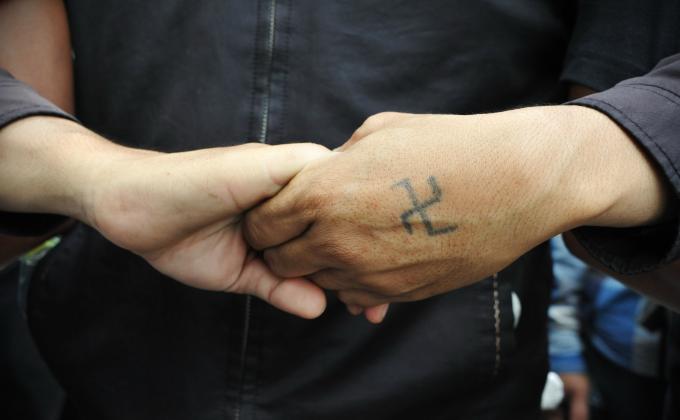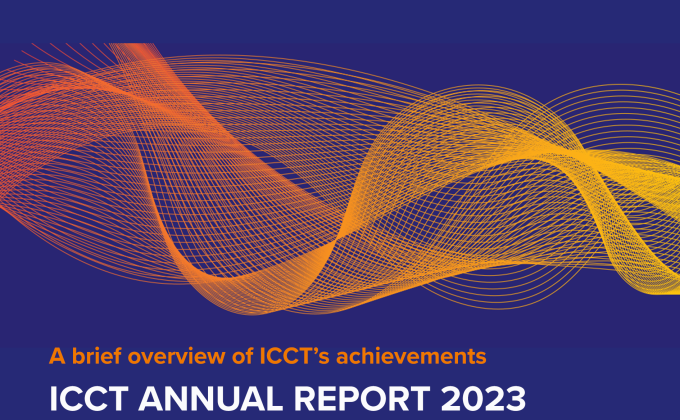Cet article est également disponible en français.
On 5 June 2020, reports began to emerge about the death of Abdelmalek Droukdel (also known by his nom de guerre, Abu Musab Abdel Wadoud) in a French-led operation carried out in the Malian city of Talhandak, near Tessalit. This announcement was initially met with skepticism, in particular given France’s prior erroneous reports of the deaths of other key jihadists in Mali, including most notably Katiba Macina’s Amadou Kouffa and al-Mourabitoun’s “uncatchable” leader, Mokhtar Belmokhtar. Droukdel himself had been falsely reported as dead on multiple occasions, but public confirmation from US Africa Command (AFRICOM) that the US had provided intelligence and support for the 3 June 2020 operation has lended credibility to the claim that Droukdel has, after years of pursuit, finally been taken out. Yet despite early reactions heralding Droukdel’s death as a blow for al-Qaeda in the region, the resilience and adaptability of jihadist groups in the region point towards their enduring ability to not only survive this blow, but to continue to gain ground throughout the Sahel.
Droukdel’s rise in al-Qaeda
Prior to his death, Droukdel, born in 1970 in Meftah, Algeria, had served as the Emir of al-Qaeda in the Islamic Maghreb (AQIM) since its inception. One of al-Qaeda’s longest serving regional commanders, Droukdel’s jihadist career started with his involvement in the Armed Islamic Group (Groupe Islamique Armé, GIA)—a markedly violent Islamic insurgent group that emerged during the Algerian civil war—initially as a bombmaker but later rising through the ranks. By 1998, with the power of GIA on the wane, the group splintered off into the Salafist Group for Preaching and Combat (Groupe Salafiste pour la Prédication et le Combat, GSPC), of which Droukdel assumed leadership in 2004. Under his guidance, by 2006, GSPC had sworn allegiance to al-Qaeda and was rebranded as al-Qaeda in the Islamic Maghreb (AQIM) the following year. Droukdel played a major role in establishing connections between global and local jihad, maintaining correspondence with senior al-Qaeda leadership, including Abu Musab al Zarqawi, the former leader of al-Qaeda in Iraq, while encouraging a strategy of adaptation to local circumstances and exploitation of existing grievances among his movement’s ranks in order to gain support among local populations.
Under Droukdel’s leadership, AQIM expanded beyond Algeria and reoriented itself as a regional threat, particularly in the Sahel, carrying out attacks in Mali, Mauritania, Libya, Tunisia, and Niger. Reported to be “ruthless and ambitious”, unlike other members of al-Qaeda’s senior leadership, Droukdel never trained in al-Qaeda camps abroad. He was, however, skilled in expanding the use of both kidnapping for ransom and suicide attacks. Under his leadership, AQIM is believed to have raised $75 million between 2010 and 2014 through kidnapping for ransom alone, making the entity likely wealthier than al-Qaeda central and undoubtedly reinforcing Droukdel’s importance within the larger organisation. AQIM also heavily adopted the use of suicide bombings, including attacks on the Algerian Prime Minister’s office in 2007 and on the Radisson Blu Hotel in Bamako in 2015 through an absorbed affiliate group, al-Mourabitoun.
Droukdel was regarded as a charismatic leader and notably called on would-be jihadis from North Africa to fight in the Sahel and the Maghreb rather than leave to join the Islamic State. He also astutely foresaw that the rapid implementation of Sharia Law by the Islamist militants who took over Timbuktu in 2012 would lead to Western intervention in Mali. Despite the significant presence of French forces in response to the jihadist threat in Mali—in Operation Serval and Operation Barkhane—along with other security and peacekeeping forces, including more than 14,000 UN troops , Droukdel evaded capture for years. In large part, this may be because he seems to have stayed out of Mali, preferring instead to take refuge in Algeria and most likely Tunisia.
Leadership to come and AQIM’s future strategy
Various AQIM veterans are believed to now be in line for his succession, including the leader of the group’s Council of Notables, Abu Ubaydah Yusef al-Annabi, however it is doubtful that any substitute leader would be able to match the legitimacy and authority that “the oldest chief al Qaeda jihadist in the world” enjoyed. The question of Droukdel’s succession also raises issues surrounding the ethnic dynamics of AQIM itself and seen amongst the various regional al-Qaeda-affiliated groups, currently operating under the JNIM umbrella.
AQIM leadership has always been Algerian, with accusations that "sub-Saharan Africans [are] clearly second class in the eyes of AQIM". This is purported to be one of the reasons that MUJAO (Mouvement pour l'unicité et le jihad en Afrique de l'Ouest)—which drew many of its members from various different sub-Saharan ethnic groups—split from AQIM in 2011. The new leadership of AQIM is unlikely to be anything but Algerian. However, this risks reducing the influence of the group throughout the Sahel even further, as the conflict is moving southwards away from Algeria and into central Mali and other neighbouring states. Jihadist groups throughout the region are increasingly reliant on drawing in both fighters and supporters from local ethnic groups, something that may pose a growing challenge for a continued Algerian leadership moving forward. The choice of successor may also widen the divide between the once closely linked North African and Sahelian jihad.
At the time of writing, AQIM has not officially commented on reports of Droukdel’s death and speculation over how it will impact not only AQIM, but the broader Maghreb and Sahel’s jihadist nebula is well under way. Hindsight will no doubt be required to fully appreciate the impact of Droukdel’s death, but the remarkable resilience that terrorist organisations active in the region have demonstrated in recent years and the limited impact that neutralising leaders, even prominent figures, has on reducing groups’ overall influence and operational capacities should not be underestimated. In addition, the death of AQIM’s leader should be placed in perspective with the current configuration of the terrorist threat.
Retrenched for years in Northern Africa, Droukdel has seen AQIM’s movement lose significant influence among its traditional Algerian bastion. Although remaining AQIM’s emir and a fundamental figure of al-Qaeda’s movement, he was hardly an operational leader anymore. Challenged by the emergence of diverse IS-affiliated rivals, Droukdel was largely removed from the main operational area of the conflict, which had progressively shifted to the Sahel. In recent years, the Sahelian jihadist sphere has indeed largely played by its own rules and Sahel-based organisations have progressively gained prominence under the leadership of local figures, such as Iyad Ag Ghali. Even under the JNIM umbrella, terrorist organisations and have retained great autonomy. The most lethal groups in the region—namely the Katiba Macina [1] and a fortiori the Islamic State in Greater Sahara (ISGS)—were not under his direct command, and their operational capacities are unlikely to be significantly impacted.
Though an important symbolic victory and a notable blow against violent extremism in the region, Droukdel’s death will likely not result in a major shift of the balance of power, nor in a weakening of the Sahel’s jihadist groups. Extremist violence in the region will likely continue to worsen, with neighbouring countries suffering a spillover effect. Al-Qaeda-aligned groups have advanced their agenda in the region, cultivating support by exploiting local grievances and existing tensions, as well as providing basic services—relying on much more than the sole influence of charismatic leaders. To address the growing strength of jihadist groups, more is needed than taking out a few individual leaders.
[1] Katiba is an Arabic term used for a combatant group/unit which may also be roughly translated as brigade.
Image of the La Mauritanie en alerte après des rapports sur AQMI by Magharebia, used under the Attribution 2.0 Generic Creative Commons License.









